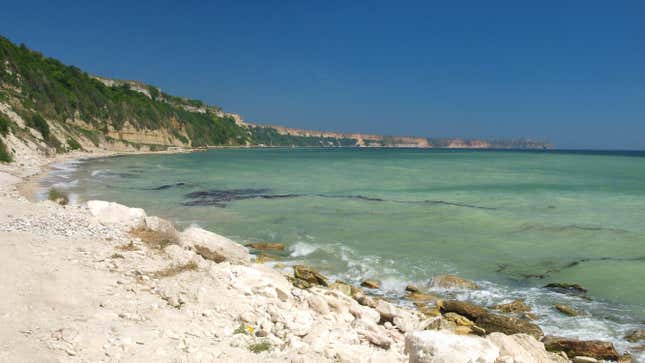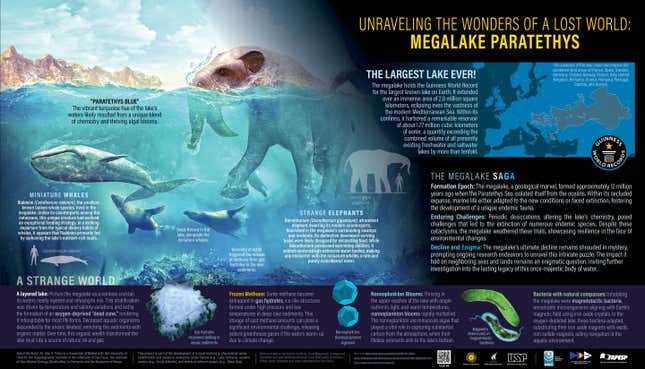
The largest lake in Earth’s history is now in the Guinness Book of World Records. The Paratethys—or Lake Paratethys, if you will—and contained 10 times more water than all of Earth’s modern lakes. In other words, it’s long overdue for its place in the Guinness Book.
At its height, the Paratethys stretched from Austria in the west to Turkmenistan in the east. It covered 1.08 million square miles (2.8 million square kilometers) and contained about 407,000 cubic miles (1.77 million cubic kilometers) of water. The research detailing the exact measurements of the lake was published in Scientific Reports in 2021, and now the lake’s scale has been documented in the Guinness Book of World Records—hardly the all-encompassing atlas of absolute truths but still a neat accolade.
The Paratethys existed about 11.6 million years ago. It housed giant species, like the baleen whale Cetotherium riabinini—granted, the smallest-known baleen whale—and the swamplands around it were home to the proboscidean Deinotherium, a giant even among its elephantine relatives.

The lake dried up over millions of years, losing more than one-third of its water and about two-thirds of its surface area in a 350,000-year span ending about 7.65 million years ago, according to the Guinness World Record website. The Black Sea, Caspian Sea, and Aral Sea are the major remnants of this awesome lake.
“Our exploration of the Paratethys goes beyond mere curiosity. It unveils an ecosystem acutely responsive to climate fluctuations,” said Dan Palcu, an earth scientist at Utrecht University, in a release. “By exploring the cataclysms that this ancient mega lake endured as a result of climate shifts, we gain invaluable insights that can elucidate the path to addressing current and future crises in toxic seas, such as the Black Sea.”
The Black Sea’s sediments contain locked-away methane, which can be released into the atmosphere due to climate change, the release notes. By the same token, the sea can act as a carbon sink, storing greenhouse gases. The loss of the Paratethys offers lessons on how present climate change could alter our water sources and our environment.
“The world’s largest ever lake” is a far-cooler record than some of the ultra-specific ones in the book, like the ones for losing the most of personal wealth, or the heaviest self-powered vehicle, or (and I can’t believe I’m writing this) the one for the most cinema productions attended of the same film, awarded to a Florida man for seeing Spider-Man: No Way Home 292 times. No way home, indeed.
More: NASA’s Massive Rocket Transporter Is Officially a Record-Breaking Big Boy